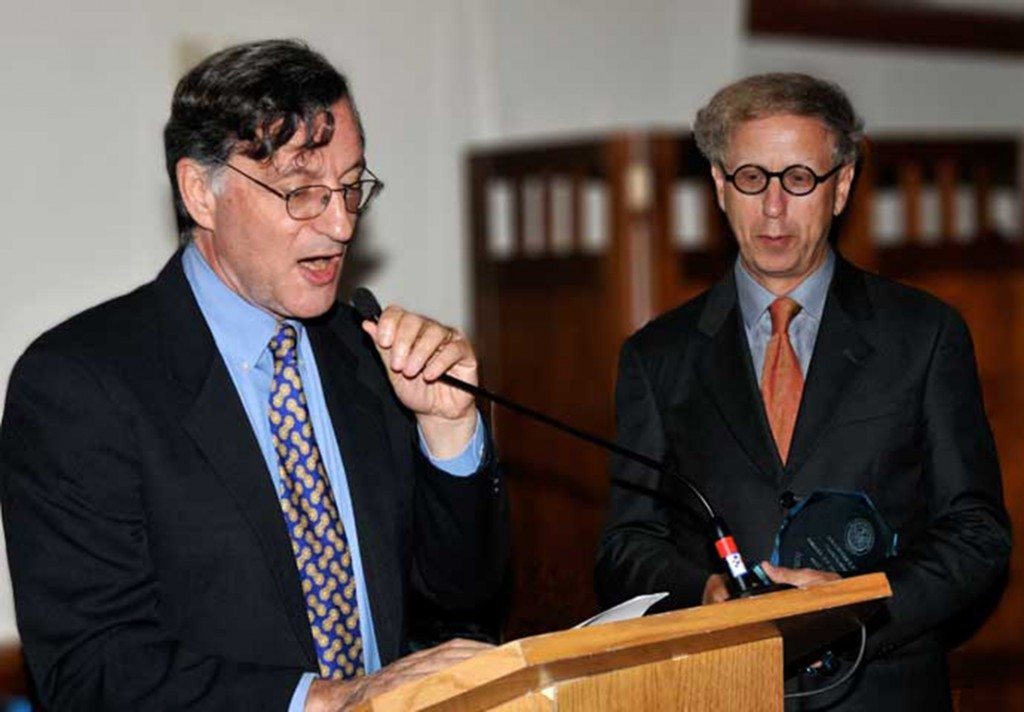 W.B. Yeats said the Irish have an abiding sense of tragedy, which sustains them through temporary periods of joy. I’d like to nominate The New York Times’ N.R. Kleinfield as an honorary Irishman.
W.B. Yeats said the Irish have an abiding sense of tragedy, which sustains them through temporary periods of joy. I’d like to nominate The New York Times’ N.R. Kleinfield as an honorary Irishman.
Kleinfield’s front page story in The Times’ Sunday, Oct. 18, print edition (‘The Lonely Death of George Bell’) is an amazing piece of reportage and storytelling about the life and times of George Bell Jr. (1942-2014), who died alone in his one-bedroom, co-op apartment in Jackson Heights, Queens in July 2014.
Having never married, and with no immediately known heirs, or even friends, Bell’s demise set into motion a series of governmental actions Kleinfield brilliantly chronicles. There are the firefighters who legally opened his apartment door and declared him dead; the medical examiner personnel who determined he’d died of natural causes and processed his remains; and the public administrator’s exhaustive search for Bell’s rightful heirs after a will Bell had prepared in 1981—the year of his mother’s death—had been discovered.
“Some 14 months after a man died, his estate was settled and the proceeds were good to go,” Kleinfield writes, after a surrogate court reviewed Bell’s estate, which stood at about $540,000, bolstered by the sale of his co-op apartment for $215,000, and his 2005 Honda, at auction, for $9,500. The vehicle only had 3,000 miles on it. “For the recipients, George Bell had stepped out of eternity and united them by bestowing his money. No one in the drawn-out process knew why he had chosen them, nor did they need to. They only needed to know him in the quietude of death, as a man whose heart had stopped beating in Queens. But he had been like anyone, a human being who had built a life on this earth.”
Bell, whose parents came from Scotland, worked in the moving business, and Kleinfield reports he’d supposedly planned to marry 19-year-old Eleanore Albert when Bell was 25. The wedding never took place, with Bell said to have ended their engagement after Eleanore’s mother insisted Bell sign a pre-nuptial agreement, according to the article. Nonetheless, the people who cleaned up Bell’s apartment after his death, a residence which showed signs he was a hoarder, found friendly, somewhat recent, correspondence from Eleanore. She was one of four named beneficiaries in Bell’s will, even though Eleanore herself subsequently married another man in upstate New York and become Eleanore Flemm. Her husband passed away in 2002. Since Eleanore died, also alone, in February 2015, months after Bell, Eleanore’s estate received the proceeds to which it was entitled under the terms of Bell’s will.
“A difference was that she [Eleanore] left behind debt, owed to the bank and to credit card companies. All that she would pass on was tens of thousands of dollars of George Bell’s money, money that she never got to touch,” Kleinfield writes, explaining how Bell, in death, also eased the financial burdens of two of Eleanore’s nieces along with one of his moving company co-workers whose name was also listed in Bell’s will as a beneficiary.
In Kleinfield’s telling, Bell began to withdraw from the world in 1996, “after he’d hurt his left shoulder and spine lifting a desk on a moving job, and his life took a different shape,” the story states. Having received approval for worker’s compensation and Social Security disability payments, and then collecting a modest pension, Bell “had all the income he needed,” Kleinfield writes. Still, it was hard to find evidence in the Times’ heartbreaking tale that Bell had many temporary periods of joy.
Mike Barry, vice president of media relations for an insurance industry trade group, has worked in government and journalism. He can be reached at mfbarry@optonline.net. The views expressed in this column are not necessarily those of the publisher or Anton Media Group.































